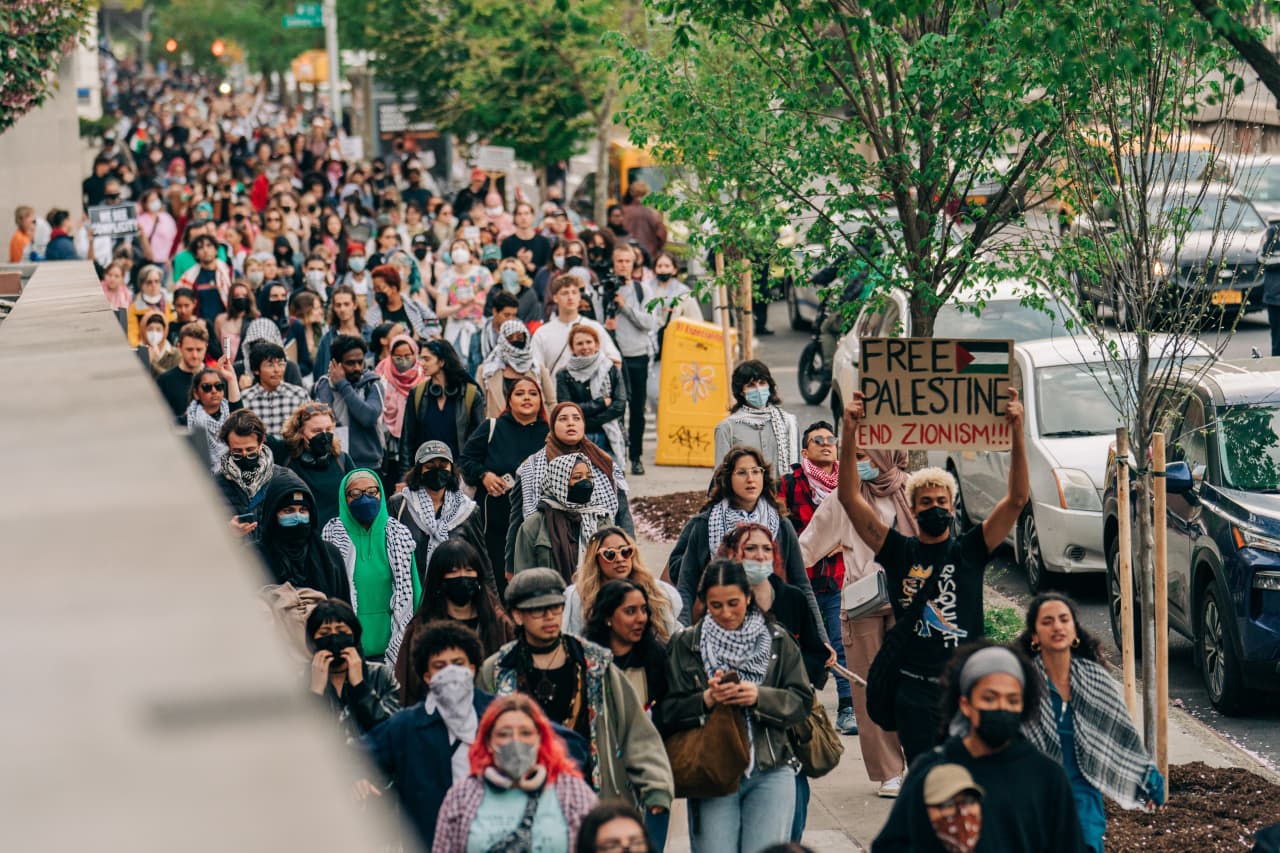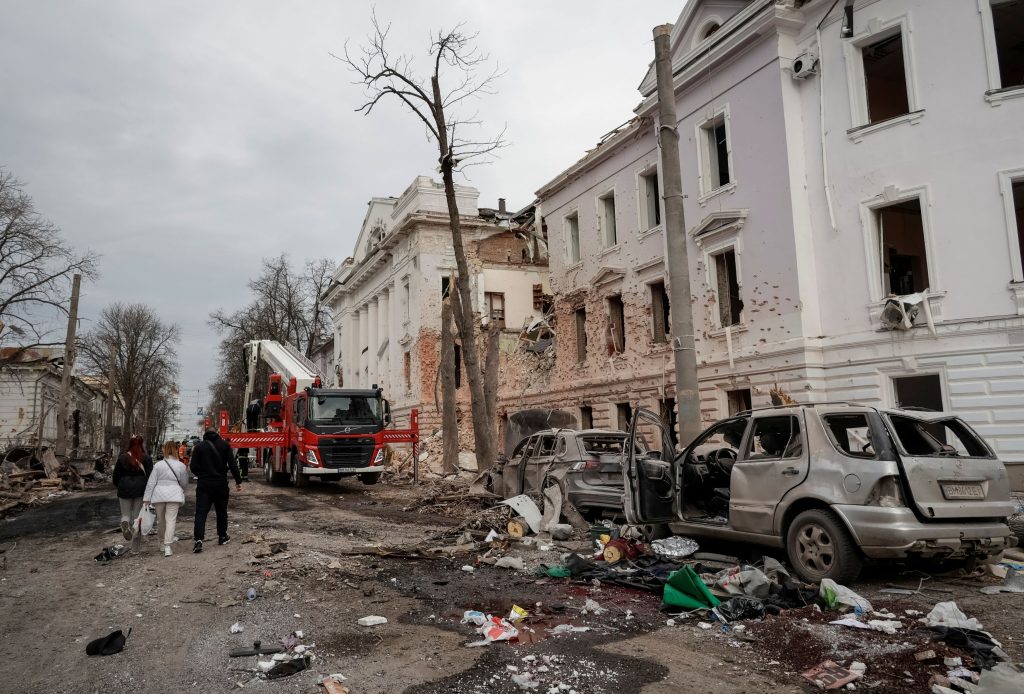Hamas leader Yahya Sinwar sought to remake the Middle East with last year’s attack on Israel, dragging Iran, Lebanon’s Hezbollah and much of the region into what he foresaw as a decisive battle ending in the Jewish state’s demise.
The region, and the world’s balance of power, have indeed been decisively altered in the aftermath of that carnage, which killed some 1,200 Israelis.
The Israeli response since then has caused tens of thousands of deaths in Gaza and Lebanon, including Sinwar and Hezbollah’s chief Hassan Nasrallah alongside countless Palestinian and Lebanese civilians. For the first time in its history, Israel now is involved in a direct military conflict with Iran.
But, just like the Sept. 11, 2001, attacks—in which Osama bin Laden aimed to destroy American power in the Middle East and spearhead an Islamist takeover of the region— Sinwar ’s bloody gambit didn’t quite go to plan. In the short term, it has showcased Israel’s military strength, defanged the Iranian-led “axis of resistance” and made the aspirations of Palestinian self-determination more remote than ever.
In part that is because, instead of facing a concerted attack from its foes, Israel has managed to go after them sequentially.
It first conquered Gaza , flattening much of the area to remove Hamas as the enclave’s de facto government. In a series of intelligence-driven strikes, Israel then decapitated Hezbollah’s leadership —removing the Lebanese militant group’s ability to serve as Iran’s strategic deterrent—and started a ground operation in border areas of southern Lebanon. And now, with U.S. support, Prime Minister Benjamin Netanyahu is planning a strike on key targets in Iran , a response to an Iranian ballistic missile attack. All the while, Israel’s society and economy have continued operating with few major disruptions.
How it plays over the longer term is still an open question , and will depend on whether Israel manages to translate its recent military successes into lasting political achievements.
“Iran is clearly on the back foot. Israel has neutralized some of the strategic threats that it faced, but in doing so may have also created new ones,” said Emile Hokayem, director of regional security and the Middle East at the International Institute for Strategic Studies in London. “Despite the defeat of the resistance movements, the resistance mindset has not been neutralized—also because now there is more to resist against.”
Sinwar’s Oct. 7, 2023, plan has resulted in catastrophic devastation for Gaza and horrendous suffering by ordinary Palestinians who were never asked for assent to a war against a much stronger foe. Yet, the crisis he precipitated also punctured the illusion, long nurtured by Netanyahu, that Palestinian aspirations to statehood could be ignored forever as Israel pursued normalization with other Arab nations.
“Sinwar certainly achieved his goal of bringing the Palestinian issue to the center of geopolitics,” said Nancy Okail, chief executive of the Center of International Policy, a progressive think tank. “But this came at a very high cost and in reality hasn’t moved the United States an inch in its support of Israel. And if the U.S. policy doesn’t change, the situation for Palestinians won’t change.”
For now, Israel’s diplomatic relations with Arab states have survived the trials of the past year. Several flights a day continue plying Saudi Arabian skies as they connect Tel Aviv to Dubai, and Riyadh is still interested in a normalization deal with Israel—provided it comes with U.S. security guarantees and progress toward a Palestinian state. Israel’s cold peace with Jordan and Egypt is shaken but still stands, as do the more recent diplomatic agreements with Morocco and Bahrain.
Still, images from Gaza and Lebanon—including the footage of Sinwar’s death in battle—have increased popular pressure on Arab governments to take a much tougher stand, particularly in Egypt, which is going through a major economic slowdown.
Elsewhere in the developing world, countries from Colombia to South Africa have cut or downgraded ties with Israel, as Russia and China claimed the high moral ground, lambasting American support for Netanyahu. More important over the long-term, support for Israel has shrunk in the U.S. itself and in Europe, especially among the youth , as the horrors of Gaza’s destruction unfolded on TV screens.

“The Israeli brand has been compromised, and Israel is more isolated than ever before,” said Aaron David Miller, a former senior U.S. negotiator for Middle East peace and a senior fellow at the Carnegie Endowment think tank. At the same time, he added, neither the U.S. nor the rest of the international community has been able to affect Israel’s decision-making or fundamentally alter the trajectory of the conflict.
Yet, while the Palestinian cause is front and center of global attention once again, it is definitely not on Sinwar’s terms, said Firas Maksad, a senior fellow at the Middle East Institute in Washington. Sinwar’s plan was a cataclysmic conflict that would engulf the entire region, inflict a decisive military defeat on Israel and trigger the exodus of many, if not most, of Israel’s Jews.
“Instead, we are back talking about a two-state solution, about reforming the Palestinian Authority, a vision that is the antithesis of Sinwar’s,” Maksad said. “Ultimately, his objective has backfired.”
The firestorm sparked by Sinwar, of course, continues to spread, with Israel and Iran so far firing what appear to be only the initial shots of their direct conflict. Israeli officials increasingly express aspirations to achieve regime change inside Iran, comparing the Islamic Republic to the late-stage Soviet Union and planning to foment internal unrest there.
“A necessary condition for any kind of positive changes in the Middle East is the elimination of terrorist masterminds like Sinwar and Nasrallah,” said Mark Dubowitz, chief executive of the Foundation for Defense of Democracies, a think tank that supports Israel, Ukraine and Taiwan. “But it’s not sufficient. Unless there is a concerted effort to weaken, to undermine, and if history smiles on us, to bring down the Islamic Republic of Iran, then these terrorist organizations will regenerate because the Iranians will continue to finance, weaponize, train and coordinate these terror armies.”
The parameters of Israel’s expected strike on Iran are still unknown, as is the scope and nature of an eventual Iranian response. But what is certain is that the struggle between these two countries will continue for the foreseeable future, with Tehran trying to regain the initiative after recent setbacks.
Possible responses, in addition to renewed investments to rebuild Hezbollah, Hamas and other members of the axis of resistance, could include closer military cooperation with Russia, a dash to weaponize Iran’s nuclear program, or yet another strategic surprise that has become a hallmark of Middle East warfare.
“It’s clear that Israel has managed to weaken Iranian interests, but I don’t think this is the end not only of this escalation, but also of the tension that has been going on for years,” said Nicole Grajewski, an Iran specialist at the Carnegie Endowment for International Peace. “Iran is going to have to recalibrate its strategy. Over the long term, Iran will find ways of adapting to the situation.”
Write to Yaroslav Trofimov at yaroslav.trofimov@wsj.com




